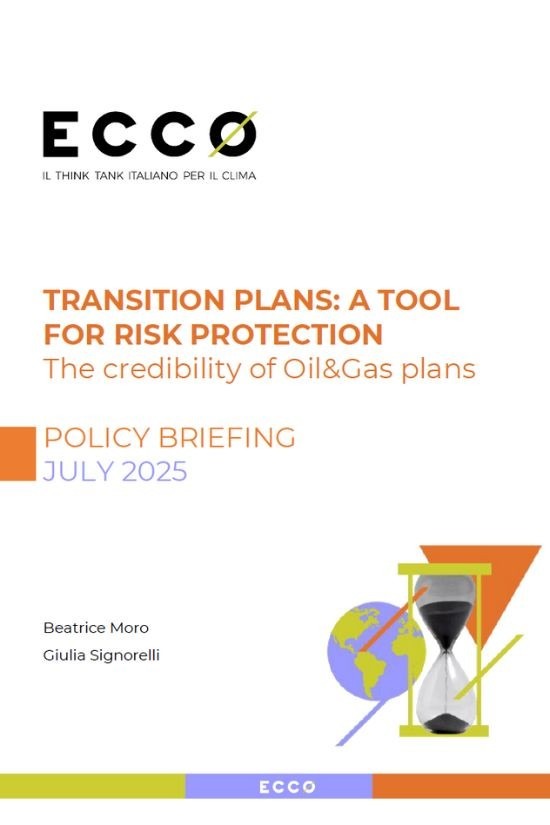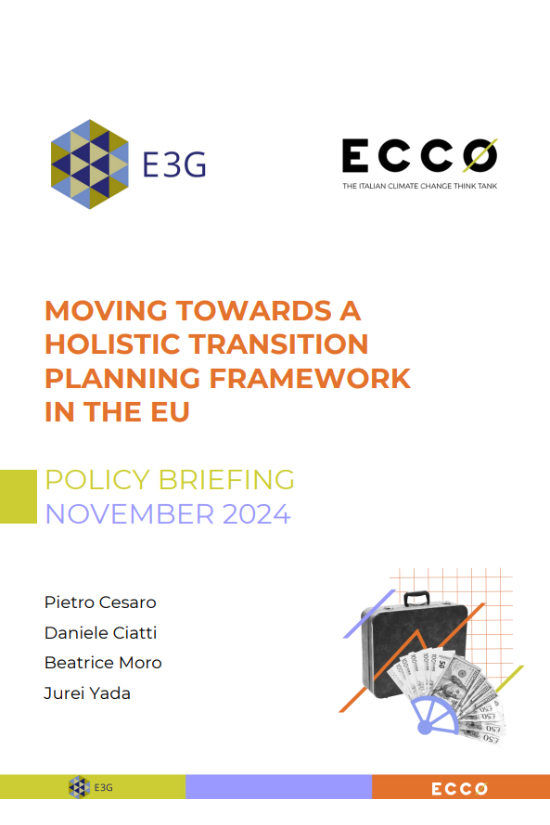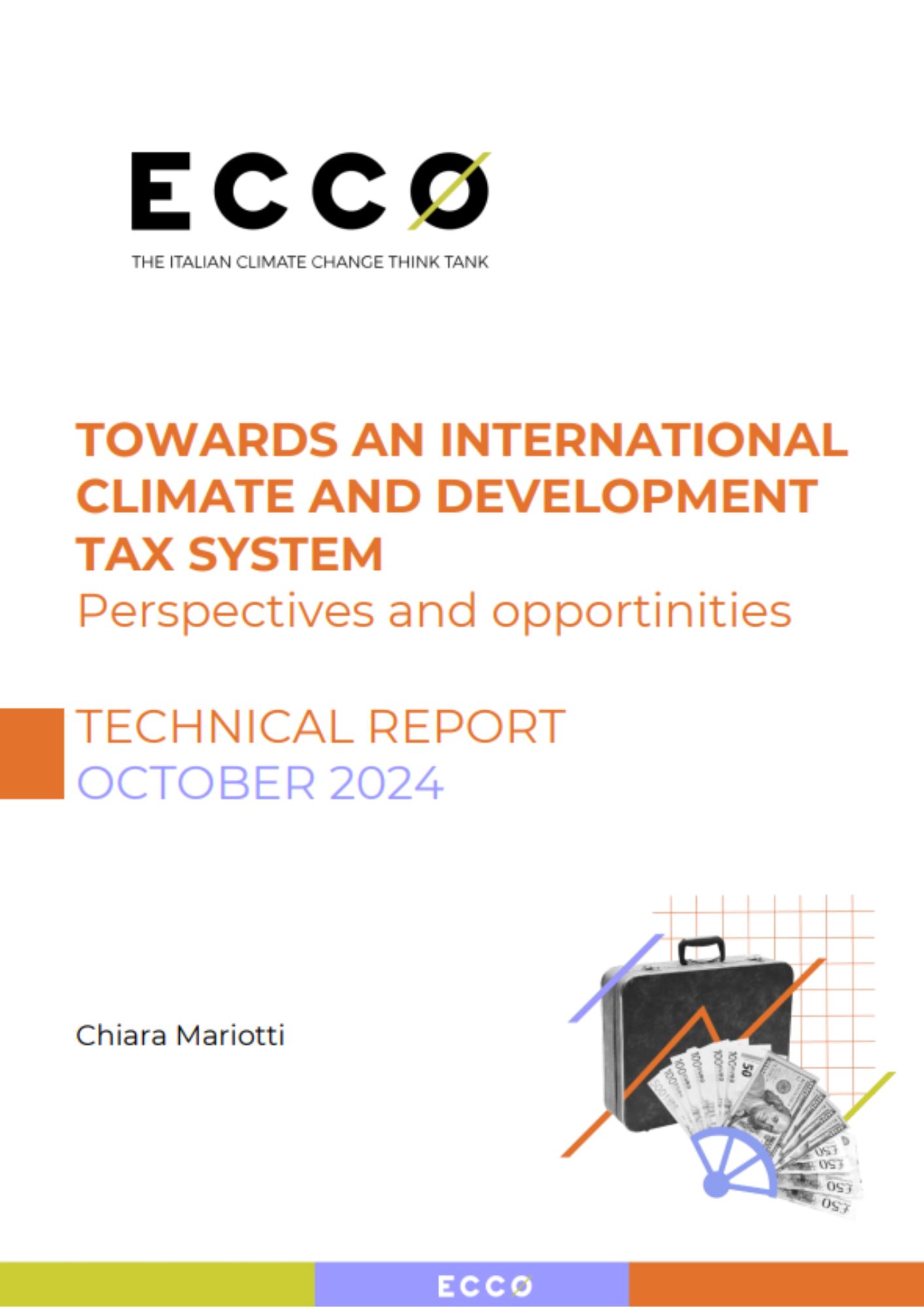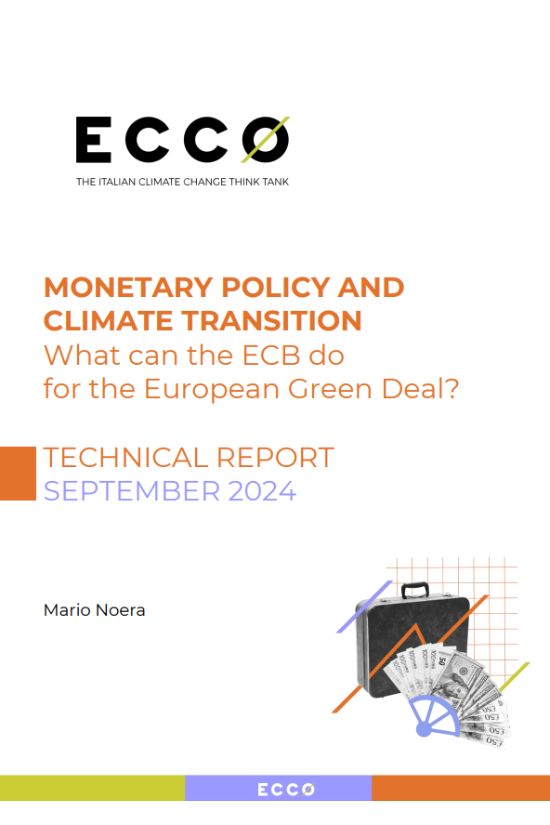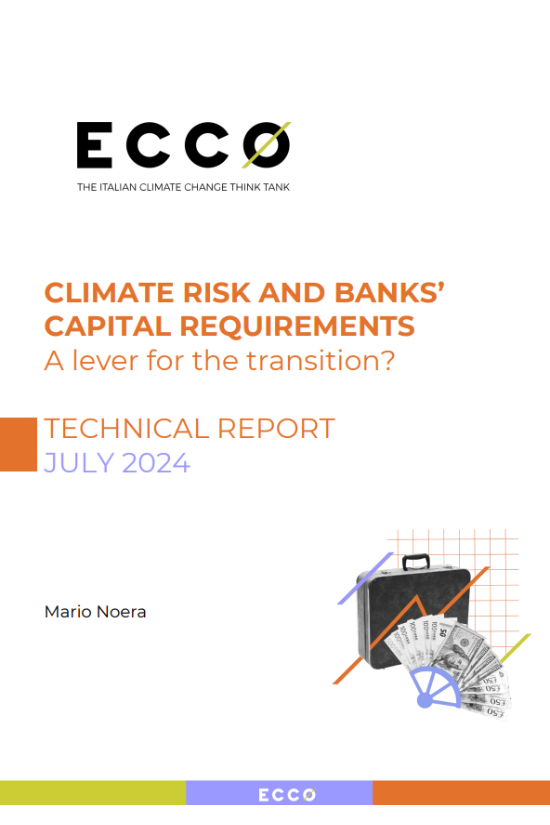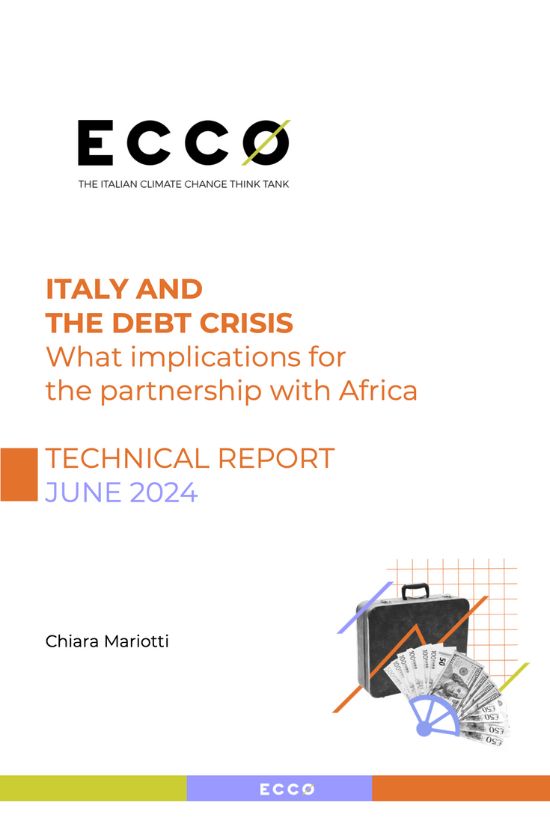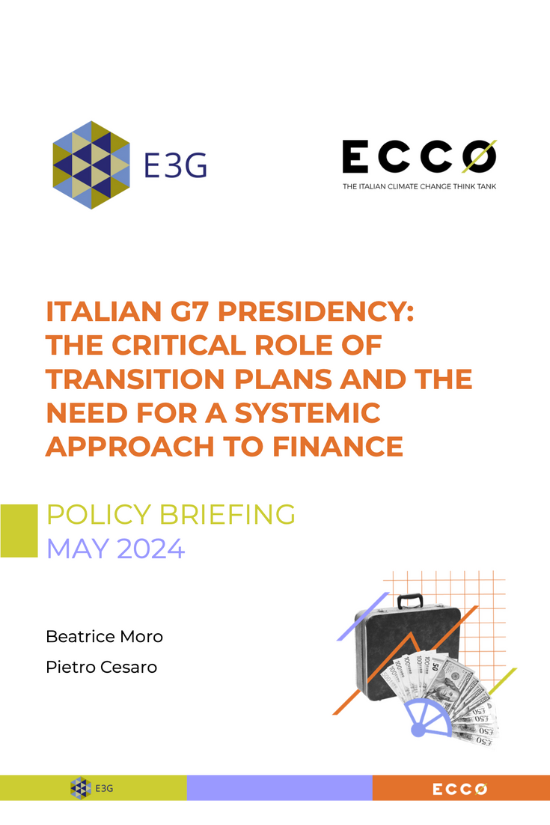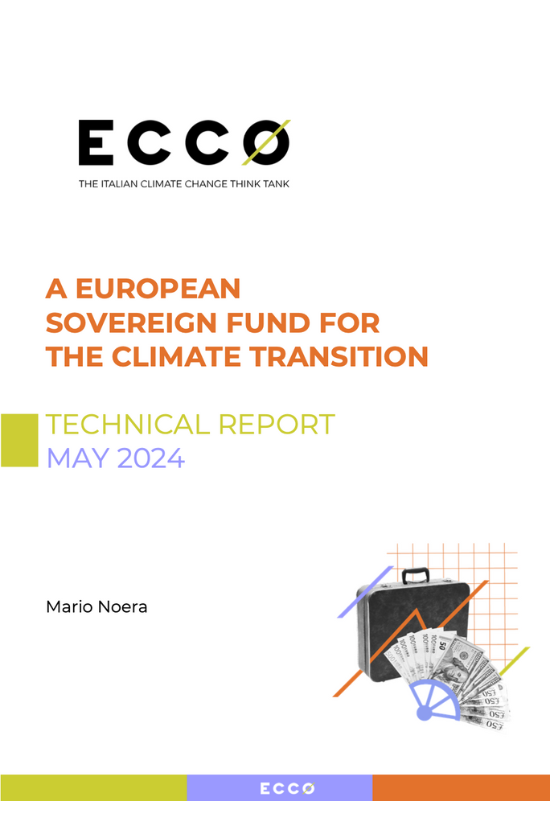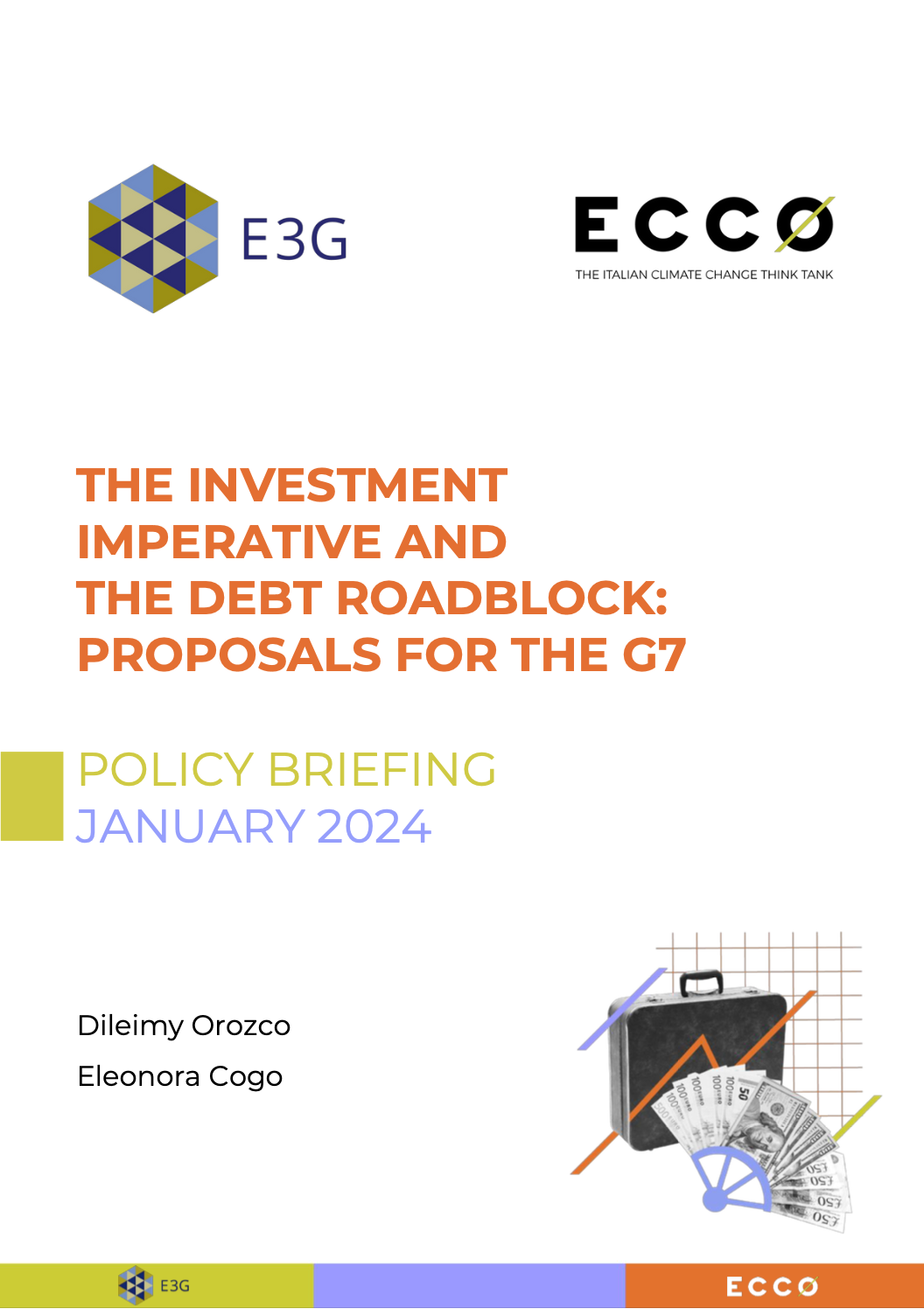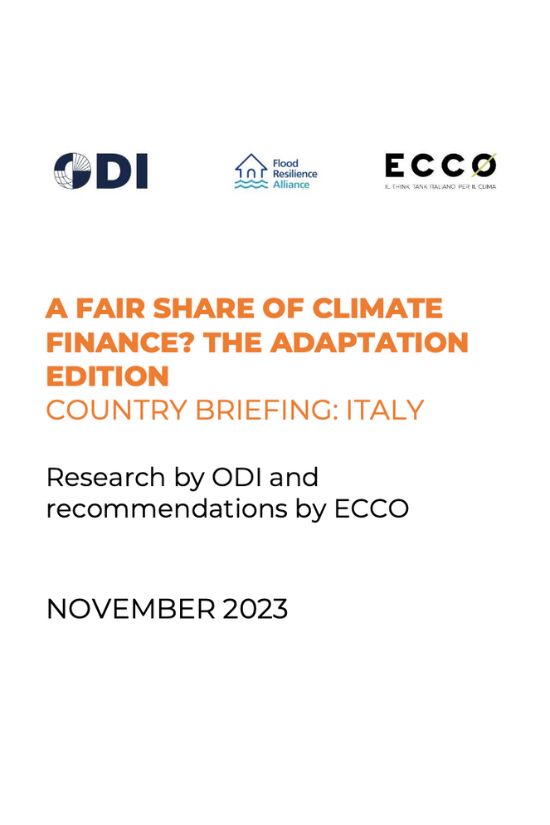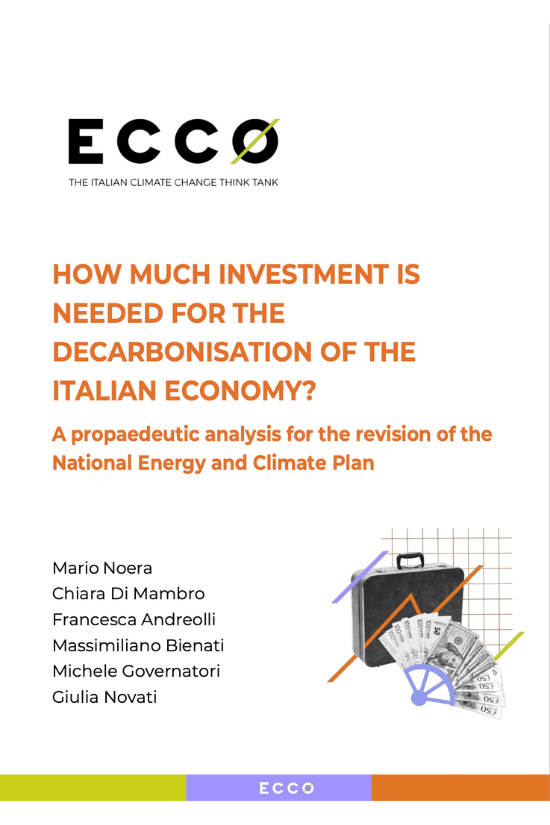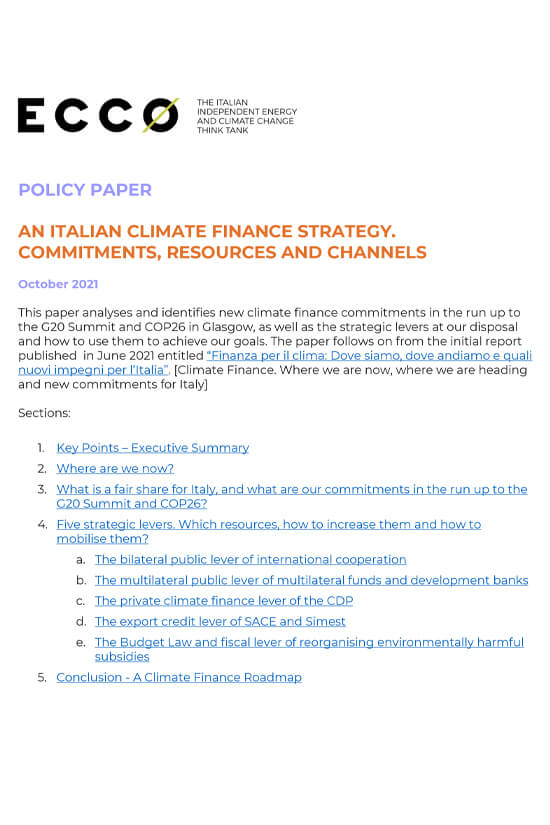Publications
Search
Filters
Authors
/ Alexandra Scott
/ Andrea Ghianda
/ Annalisa Perteghella
/ Beatrice Moro
/ Carolina Bedocchi
/ Caterina Molinari
/ Cecilia Trasi
/ Chiara Di Mambro
/ Chiara Mariotti
/ Chloe Pagliaro
/ Costanza Scano
/ Davide Panzeri
/ ECCO think thank
/ Eleonora Cogo
/ Federico Tassan-Viol
/ Filomena Annunziata
/ Francesca Andreolli
/ Francesca Bellisai
/ Gabriele Cassetti
/ Giovanni D'Amico
/ Giulia Colafrancesco
/ Giulia Giordano
/ Giulia Novati
/ Giulia Signorelli
/ Ilaria Mazzocco
/ Lorena Stella Martini
/ Luca Bergamaschi
/ Luca Iacoboni
/ Mario Noera
/ Marta Lovisolo
/ Massimiliano Bienati
/ Matteo Leonardi
/ Matteo Viola
/ Michele Governatori
/ Nicolas Drago
The Transition Plans published by Italy’s leading oil and gas companies exhibit significant shortcomings, particularly in the quantitative analysis of risks, the planned reduction in hydrocarbon production, and transparency around geographic and regulatory dependencies. For these plans to be credible, they must go beyond simple reporting, incorporating rigorous analysis and a clear governance strategy that reduces uncertainty and decisively channels investment toward truly sustainable solutions.
In this paper, we have assessed how the NRRP is being implemented and its current contribution to the achievement of climate objectives, four years after its adoption. To determine its progress, we have selected and examined a number of climate flagship measures within it, two reforms and four investments relevant to the climate and the energy transition. Based on the findings from our analysis, we have prepared policy recommendations that can inform discussions around the next Multiannual Financial Framework for the 2028-2034 period.
This briefing, authored by ECCO and E3G, takes stock of the EU transition planning framework initiatives and calls for a systemic approach – moving towards a simple and holistic transition planning framework that aligns various governance systems and policy tools within the EU, while ensuring consistency with international climate goals such as the Paris Agreement.
The climate crisis and its associated costs have contributed substantially to placing international tax
cooperation high on the international agenda. Taxation can facilitate the energy transition
by disincentivising the use of fossil fuels; create additional resources to tackle climate change;
contribute to climate justice by taxing fossil-intensive activities in the most polluting countries and
allocating revenues to countries most vulnerable to climate change.
The European Central Bank (ECB) and the National Central Banks (NCBs) play a crucial role in the transition towards a net zero economy. This report analyses the actions of the European Central Bank with the aim of identifying ways in which the existing institutional structure and current macroeconomic context could allow it to provide more effective support to the European Green Deal.
Empirical evidence shows that capital requirements have a significant influence on both the volume of credit and the level of bank interest rates, and demonstrates that the use of macroprudential capital requirements can play a decisive role in mitigating the risks of transition generated by aggressive decarbonisation policies. These findings therefore show that macroprudential policies are a necessary complement to other climate policies in order to reduce the exposure to risk of financial intermediaries.
In recent years, Italy has demonstrated a growing interest in the African continent, culminating with the Italy-Africa Summit in January 2024. In order to develop a mutually beneficial partnership with Africa, through the Mattei Plan and the leadership earned through the 2024 G7 presidency, Italy must listen and respond to the needs expressed by its African partners, which include a series of reform proposals of the international financial architecture.
G7 finance and climate tracks should align their strategy, find a common position and support a systemic approach to defining and financing national transition plans. Such a systemic approach developed by G7 is critical to give confidence, build trust and inform next set of finance and climate decisions at COP29 and COP30 on the New Collective Quantified Goal on Climate Finance (NCQG) and the Nationally Determined Contributions (NDCs).
Given the imperative to mobilize private investment at the scale required to address climate change, the effective deployment of funding, policies, and frameworks becomes paramount. In this context, it is imperative to place Transition Plans (TPs) at the heart of the G7 finance agenda as primary tools to re-orient and re-design private and public choices towards resilient and sustainable economic systems.
For the European Union, the estimated investment needed to implement the Green Deal would require a total annual investment in the 2021-2030 period of approximately 1,285 billion per year, equal to 8% of GDP of the EU in 2022. The setting up of a European energy and climate fund is therefore legally and technically feasible, and should be a decisive theme of political debate, particularly in light of the upcoming European Parliamentary elections and the renewal of the Commission.
This policy briefing, prepared by ECCO and E3G, examines the relationship between debt and climate at a pivotal moment for transforming the international financial architecture and for ensuring finance flows towards climate growth opportunities. Italy can play a key role in shaping a more resilient and sustainable future for Africa through both its G7 Presidency and the Mattei Plan.
The report developed by ODI to which this briefing refers - 'A fair share of climate finance? The adaptation edition' - looks at the climate finance provided in 2021 to evaluate each country’s progress against the $100 billion goal. In addition, we produce new evidence to evaluate each country’s adaptation finance provision against the aim of at least doubling adaptation finance from 2019 levels by 2025, which we set at $40 billion – double the $20 billion reported in 2019.
A propaedeutic analysis for the revision of the National Energy and Climate Plan (NECP). Estimates of the total investment that Italy needs in order to align with the new European Fit-for-55 targets range between an average of EUR 122 and EUR 134 billion per year. The additional investments needed are therefore EUR 30-42 billion per year higher than estimated in the NECP (2019), and 2-3 times higher than the amount allocated in the NRRP for the green transition in the 2021-26 five-year period (an average of EUR 14.4 billion per year).
Ahead of the G20 Heads of State and Government Summit in Rome and COP26 in Glasgow, we analysed and identified Italy's climate finance commitments.
The Transition Plans published by Italy’s leading oil and gas companies exhibit significant shortcomings, particularly in the quantitative analysis of risks, the planned reduction in hydrocarbon production, and transparency around geographic and regulatory dependencies. For these plans to be credible, they must go beyond simple reporting, incorporating rigorous analysis and a clear governance strategy that reduces uncertainty and decisively channels investment toward truly sustainable solutions.
In this paper, we have assessed how the NRRP is being implemented and its current contribution to the achievement of climate objectives, four years after its adoption. To determine its progress, we have selected and examined a number of climate flagship measures within it, two reforms and four investments relevant to the climate and the energy transition. Based on the findings from our analysis, we have prepared policy recommendations that can inform discussions around the next Multiannual Financial Framework for the 2028-2034 period.
This briefing, authored by ECCO and E3G, takes stock of the EU transition planning framework initiatives and calls for a systemic approach – moving towards a simple and holistic transition planning framework that aligns various governance systems and policy tools within the EU, while ensuring consistency with international climate goals such as the Paris Agreement.
The climate crisis and its associated costs have contributed substantially to placing international tax
cooperation high on the international agenda. Taxation can facilitate the energy transition
by disincentivising the use of fossil fuels; create additional resources to tackle climate change;
contribute to climate justice by taxing fossil-intensive activities in the most polluting countries and
allocating revenues to countries most vulnerable to climate change.
The European Central Bank (ECB) and the National Central Banks (NCBs) play a crucial role in the transition towards a net zero economy. This report analyses the actions of the European Central Bank with the aim of identifying ways in which the existing institutional structure and current macroeconomic context could allow it to provide more effective support to the European Green Deal.
Empirical evidence shows that capital requirements have a significant influence on both the volume of credit and the level of bank interest rates, and demonstrates that the use of macroprudential capital requirements can play a decisive role in mitigating the risks of transition generated by aggressive decarbonisation policies. These findings therefore show that macroprudential policies are a necessary complement to other climate policies in order to reduce the exposure to risk of financial intermediaries.
In recent years, Italy has demonstrated a growing interest in the African continent, culminating with the Italy-Africa Summit in January 2024. In order to develop a mutually beneficial partnership with Africa, through the Mattei Plan and the leadership earned through the 2024 G7 presidency, Italy must listen and respond to the needs expressed by its African partners, which include a series of reform proposals of the international financial architecture.
G7 finance and climate tracks should align their strategy, find a common position and support a systemic approach to defining and financing national transition plans. Such a systemic approach developed by G7 is critical to give confidence, build trust and inform next set of finance and climate decisions at COP29 and COP30 on the New Collective Quantified Goal on Climate Finance (NCQG) and the Nationally Determined Contributions (NDCs).
Given the imperative to mobilize private investment at the scale required to address climate change, the effective deployment of funding, policies, and frameworks becomes paramount. In this context, it is imperative to place Transition Plans (TPs) at the heart of the G7 finance agenda as primary tools to re-orient and re-design private and public choices towards resilient and sustainable economic systems.
For the European Union, the estimated investment needed to implement the Green Deal would require a total annual investment in the 2021-2030 period of approximately 1,285 billion per year, equal to 8% of GDP of the EU in 2022. The setting up of a European energy and climate fund is therefore legally and technically feasible, and should be a decisive theme of political debate, particularly in light of the upcoming European Parliamentary elections and the renewal of the Commission.
This policy briefing, prepared by ECCO and E3G, examines the relationship between debt and climate at a pivotal moment for transforming the international financial architecture and for ensuring finance flows towards climate growth opportunities. Italy can play a key role in shaping a more resilient and sustainable future for Africa through both its G7 Presidency and the Mattei Plan.
The report developed by ODI to which this briefing refers - 'A fair share of climate finance? The adaptation edition' - looks at the climate finance provided in 2021 to evaluate each country’s progress against the $100 billion goal. In addition, we produce new evidence to evaluate each country’s adaptation finance provision against the aim of at least doubling adaptation finance from 2019 levels by 2025, which we set at $40 billion – double the $20 billion reported in 2019.
A propaedeutic analysis for the revision of the National Energy and Climate Plan (NECP). Estimates of the total investment that Italy needs in order to align with the new European Fit-for-55 targets range between an average of EUR 122 and EUR 134 billion per year. The additional investments needed are therefore EUR 30-42 billion per year higher than estimated in the NECP (2019), and 2-3 times higher than the amount allocated in the NRRP for the green transition in the 2021-26 five-year period (an average of EUR 14.4 billion per year).
Ahead of the G20 Heads of State and Government Summit in Rome and COP26 in Glasgow, we analysed and identified Italy's climate finance commitments.
